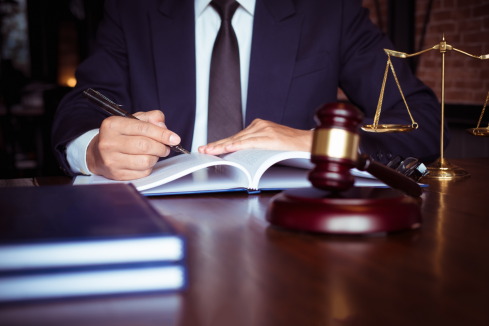What is a “Voir Dire”?
Jury selection, also known as “voir dire,” is a critical phase of a criminal trial where attorneys from both the prosecution and defense question potential jurors to determine their suitability to serve on the jury. The goal is to select a fair and impartial jury that can objectively evaluate the evidence and render a just verdict. Jury selection begins with a pool of potential jurors who are summoned to the courthouse based on voter registration lists or other similar sources. This pool is randomly selected to ensure a diverse cross-section of the community. From this pool, individuals are randomly selected and seated in the jury box located inside of the Courtroom. In some cases, potential jurors may complete written questionnaires before voir dire to provide more detailed information about their backgrounds and attitudes. This helps attorneys make informed decisions during questioning.
What is the Jury Selection Process in Criminal Trials?
To begin Voir Dire, the Judge introduces himself and instructs the potential jurors as to why they are there. The Judge can then ask them general information, such as, what their job is, if they are married or if they have children. After the Judge discusses the basics, the attorneys can then begin their questioning. During voir dire, both the prosecution and defense attorneys have the opportunity to question potential jurors. They aim to uncover any biases, prejudices, or personal experiences that might affect a juror’s ability to be impartial. A question typically asked is whether a potential juror understands the meaning of reasonable doubt. Usually, the attorneys will spend time providing examples and hypotheticals to explain this legal concept. Another common question typically asked is whether a potential juror will hold it against the accused for not testifying in Court. Attorneys want to make sure that each juror will remain fair throughout the entire trial.
What is “challenging for cause”?
The attorney from both the prosecution and defense can request the removal of a potential juror for a specific reason that indicates bias or inability to be impartial. For example, if a juror expresses a strong preconceived opinion about the case. This is called challenging for cause. Additionally, each side has a limited number of peremptory challenges which allow them to remove potential jurors without stating a specific cause. However these challenges cannot be used to discriminate based on race, gender, or other protected characteristics. If a potential juror is challenged and excused, a new potential juror from the pool is selected to replace them. Jury selection occurs in panels. This means that after a certain group of potential jurors are questioned, challenged or selected, more individuals will be called from the pool and the process will begin again. This process continues until a final jury panel is selected.
How Many Jurors Make Up a Full Panel?
Depending on the type of charge, a full panel can consist of a jury of 6 or 12 individuals, with two alternates. The goal of jury selection is to create a jury that is as impartial as possible, willing to evaluate the evidence objectively, and free from undue bias or prejudice. Attorneys use their questioning techniques, experience, and legal knowledge to identify potential jurors who might favor their side and those who might be biased against their case. The process aims to ensure a fair trial by providing both the prosecution and defense with the opportunity to shape the composition of the jury panel. Voir dire is a very important part of the trial and having a skilled attorney that can effectively select the right jury is key.
The team of Attorneys at Rozas are proficient in the art of jury selection. Call us today for a free consultation to discuss your case at(225) 478-1111.
Written by David Joseph Rozas
David Rozas is an experienced criminal and immigration lawyer and one of the founding partners of Rozas & Rozas Law Firm. He has been with the firm since 2004, joining his brother, Greg in practice. David concentrates his law practice on criminal defense and immigration.

.svg)
















